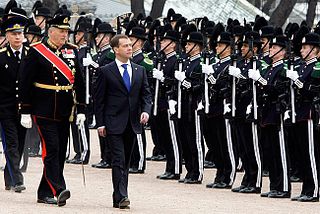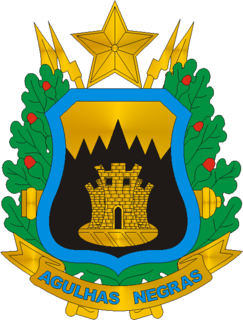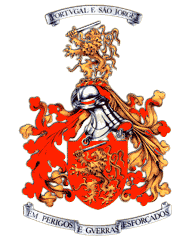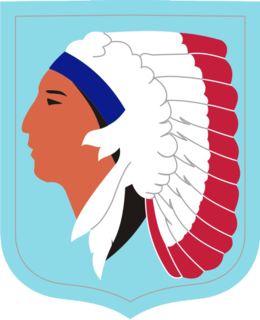A head of state is the public persona who officially embodies a state in its unity and legitimacy. Depending on the country's form of government and separation of powers, the head of state may be a ceremonial figurehead or concurrently the head of government and more.

Military ranks are a system of hierarchical relationships in armed forces, police, intelligence agencies or other institutions organized along military lines. The military rank system defines dominance, authority, and responsibility in a military hierarchy. It incorporates the principles of exercising power and authority into the military chain of command – the succession of commanders superior to subordinates through which command is exercised. The military chain of command constructs an important component for organized collective action.
A lieutenant is in some cases, the junior-most commissioned officer in the armed forces, fire services, police, and other organizations of many nations.

A lord-lieutenant ( ) is the British monarch's personal representative in each lieutenancy area of the United Kingdom. Historically, each lieutenant was responsible for organising the county's militia. In 1871, the lieutenant's responsibility over the local militia was removed. However, it was not until 1921 that they formally lost the right to call upon able-bodied men to fight when needed.
Colonel is a senior military officer rank below the general officer ranks. However, in some smaller military forces, such as those of Monaco or the Vatican, colonel is the highest rank. It is also used in some police forces and paramilitary organizations.

An aide-de-camp is a personal assistant or secretary to a person of high rank, usually a senior military, police or government officer, or to a member of a royal family or a head of state.

The Governor of Vermont is the head of the Government of Vermont, United States. The officeholder is elected in even-numbered years by direct voting for a term of 2 years. Vermont and bordering New Hampshire are now the only states to hold gubernatorial elections every 2 years, instead of every 4 as in the other 48 U.S. states.

A commander-in-chief or supreme commander is the person who exercises supreme command and control over an armed forces or a military branch. As a technical term, it refers to military competencies that reside in a country's executive leadership, a head of state or a head of government.
Captain general is a high military rank of general officer grade, and a gubernatorial title.

In some militaries, foot guards are senior infantry regiments. Foot guards are commonly responsible for guarding royal families or other state leaders, and they also often perform ceremonial duties accordingly, but at the same time are combat soldiers.

Household Division is a term used principally in the Commonwealth of Nations to describe a country's most elite or historically senior military units, or those military units that provide ceremonial or protective functions associated directly with the head of state.
Colonel-in-Chief is a ceremonial position in a military regiment. It is in common use in several Commonwealth armies, where it is held by the regiment's patron, usually a member of the royal family. The position was formerly used in the armies of several European monarchies. A Colonel-in-Chief has a purely ceremonial role in their regiment.

The Master of the Horse was a position of varying importance in several European nations.
Colonel commandant is a military title used in the armed forces of some English-speaking countries. The title, not a substantive military rank, could denote a senior colonel with authority over fellow colonels. Today, the holder often has an honorary role outside the executive military structure, such as advocacy for the troops.

The Academia Militar das Agulhas Negras is the biggest among several schools of formation of combatant officers of the Brazilian Army. It originated in 1792 with the creation of the Royal Academy of Artillery, Fortification and Drawing, the first military school of the Americas, in the city of Rio de Janeiro. Today the Academy is located in the city of Resende, in the state of Rio de Janeiro.

The Portuguese Army is the land component of the Armed Forces of Portugal and is also its largest branch. It is charged with the defence of Portugal, in co-operation with other branches of the Armed Forces. With its origins going back to the 12th century, it can be considered as one of the oldest armies in the world.

The Oklahoma National Guard, a division of the Oklahoma Military Department, is the component of the United States National Guard in the U.S. state of Oklahoma. It comprises both Army (OKARNG) and Air (OKANG) National Guard components. The Governor of Oklahoma is Commander-in-Chief of the Oklahoma National Guard when not on federal active duty. The state's highest-ranking military commander, the Adjutant General of Oklahoma (TAG), serves as the military head of the Guard and is second only to the Governor. The TAG is served by three Assistant Adjutants General, all brigadier generals, two from the Army Guard in the state, and the other the Air Guard chief. These positions are held by Army BG Steve D. Elliott, Army BG Louis W. Wilham, and Air Force BG Thomas W. Ryan. The two components each have a senior noncommissioned officer, State Command Sergeant Major for Army, currently CSM Tony F. Riggs, and State Command Chief Master Sergeant for Air, currently CCMSgt Ronald D. Teague. The TAG is also served by his Director of the Joint Staff or Chief of Staff, who has direct oversight of the state's full-time National Guard military personnel and civilian employees. This position is held by Army BG Jon M. Harrison.
Commandant is a military or police rank. In the French, Spanish, Irish and Monegasque armed forces it is a rank equivalent to major while in Belgium it is a unique rank. In South Africa for most of the second half of the 20th century, commandant was a rank equivalent to lieutenant-colonel.
Captain is a title for the commander of a military unit, the commander of a ship, aeroplane, spacecraft, or other vessel, or the commander of a port, fire department or police department, election precinct, etc. The captain is a military rank in armies, navies, Public Health Service, coast guards, etc., typically at the level of an officer commanding a company of infantry, a ship, or a battery of artillery, or similar distinct unit. The terms also may be used as an informal or honorary title for persons in similar commanding roles.










